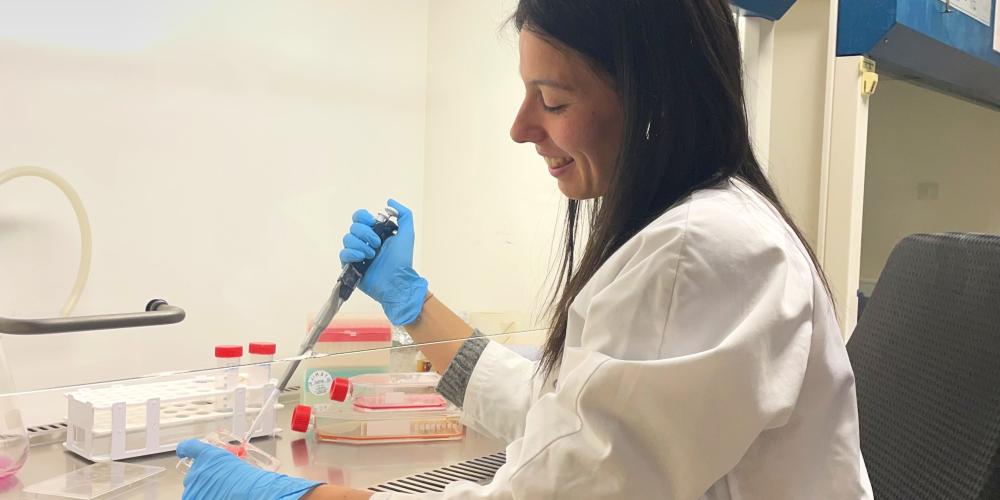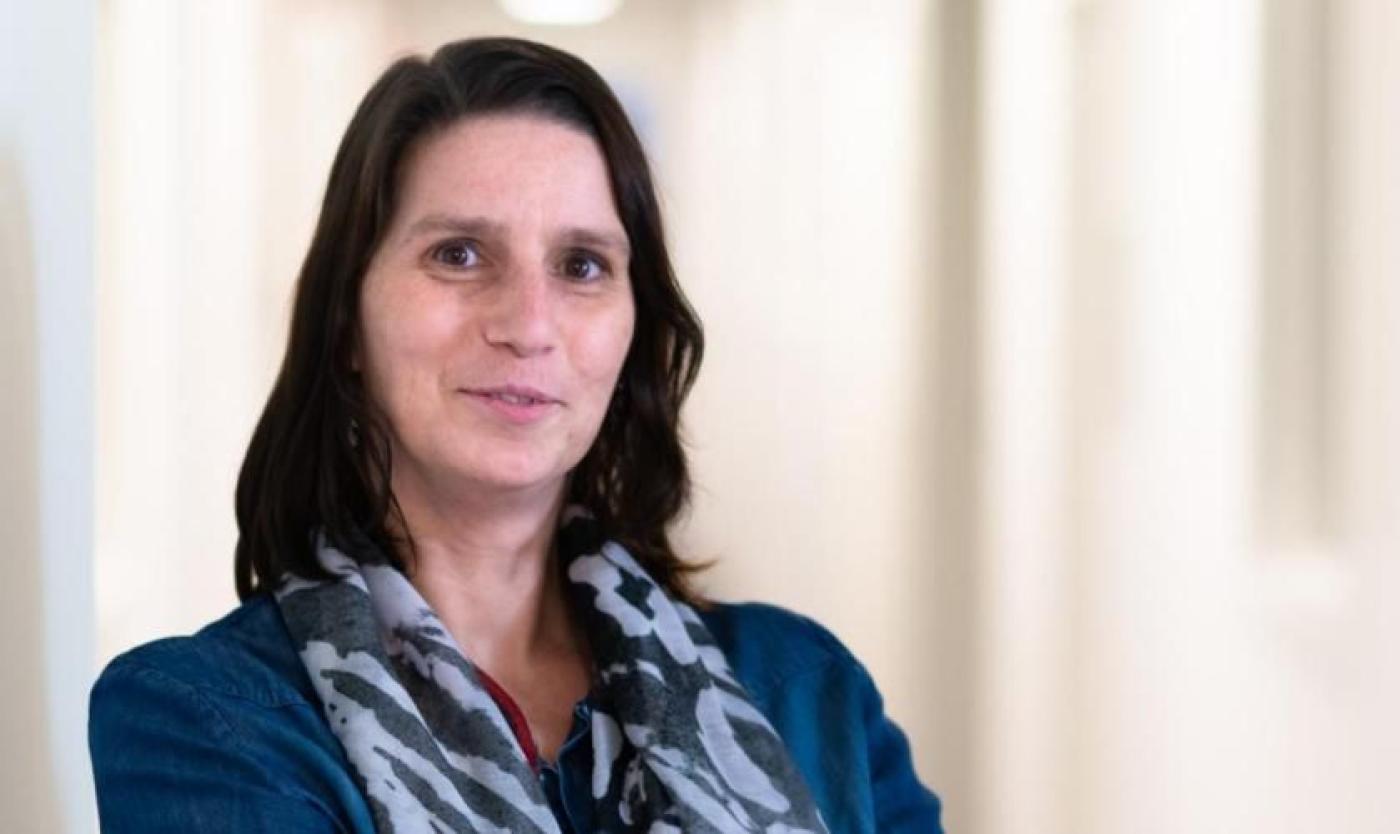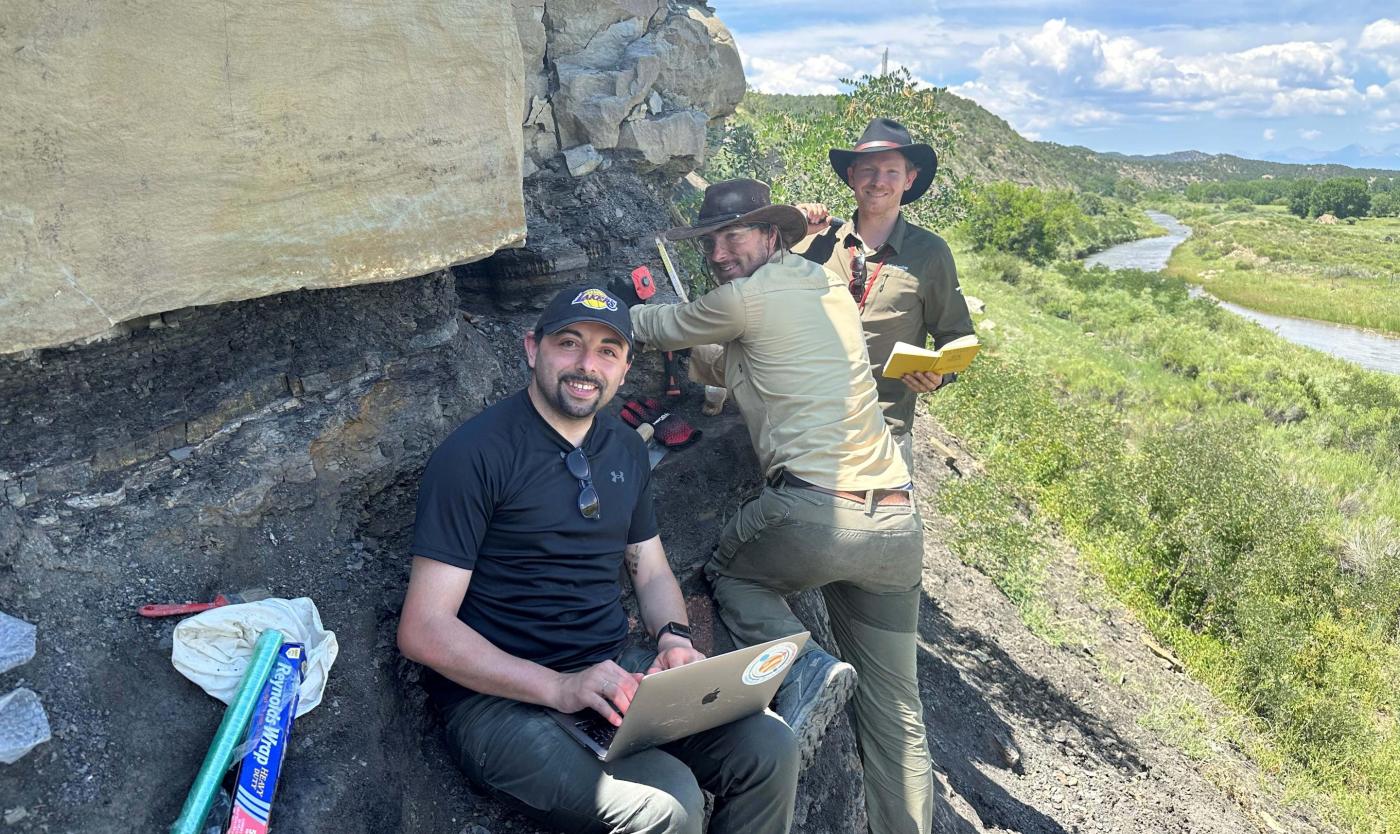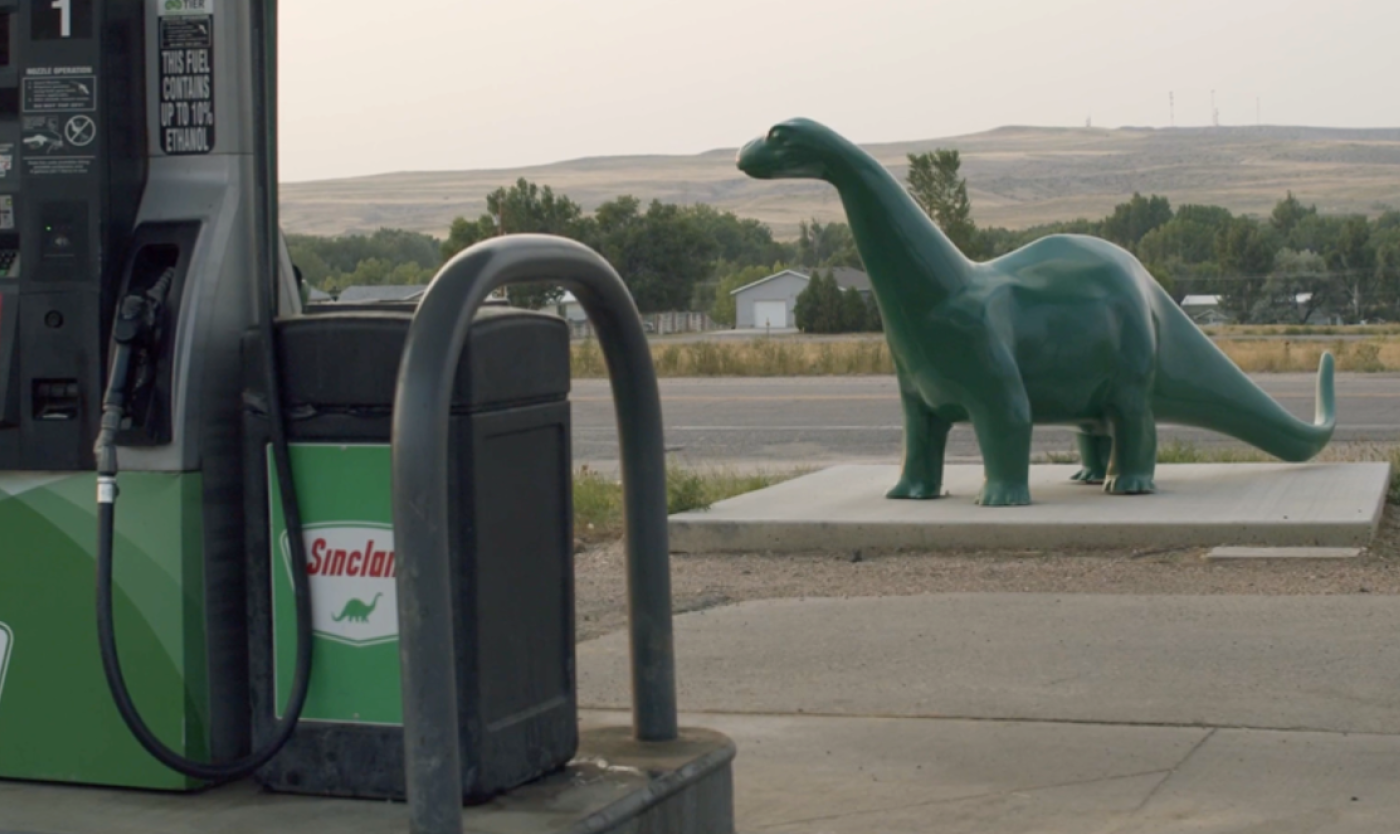
Spanish VUB researcher Marta Marco Aragón has received a grant from Kom op tegen Kanker (Stand Up to Cancer). She focuses on a form of bowel cancer that is particularly difficult to treat. Her supervisor is Professor Karine Breckpot. Laureate Marta: “The funding gives me the opportunity to carry out the research project and to focus on it completely. On top of that, I feel the recognition that my work is valuable. That motivates me to continue working towards a possible treatment for people with bowel cancer.”
How likely are you to develop bowel cancer?
Marta: “Bowel cancer is the third most common type of cancer, in both men and women. After lung cancer, it’s the deadliest. The form of bowel cancer I mainly focus on is microsatellite stable bowel cancer. 85 percent of patients have this type. It’s known as a ‘cold’ tumour, because it doesn’t attract many immune cells, preventing the body's defense system to recognize or actively fight the cancer. That’s why it’s also difficult to find good strategies to treat it with immunotherapy.”
What causes it?
Marta: “Like all cancers, bowel cancer has a mix of causes, I think. The first is genetic predisposition, and the second is lifestyle. The Western diet has really driven up the numbers. Alcohol, for instance – people think it only harms the liver, but it damages much more, including the intestines. Regular alcohol, burgers, fizzy drinks, etc., really don’t do us any good. Combined with the fact that we’re living longer, it explains why bowel cancer is becoming more and more common. The older you get, the greater the risk that your intestines are exposed to something harmful. And if a polyp goes unnoticed, it can grow into a full-blown tumour. So live healthily and get screened, especially as you get older.”
You’re researching the possibility of treating bowel cancer with mRNA therapy. What does that mean in layman’s terms?
Karine Breckpot: “We hope to activate the immune response much more strongly than is currently the case in patients. The immune system – especially the T cells – needs to attack the cancerous tumours. From the mRNA COVID vaccines, we know that it’s possible to trigger the immune system to protect you from a virus. But with cancer it’s different, because the enemy – the cancer cells – is already present in the body. So first, you have to make sure that your ‘army’ is bigger than that of the enemy. And second, to boost the immune system as much as possible, you need to make sure the cells are well equipped and have the right weapons to defeat the enemy. We believe that with Marta’s research, we’re on the right track: we have our sights on a molecule that could help us turn T cells into super soldiers.”
"One day, we will outsmart the tumour. And when that happens, we can train the immune system to do it itself"
How did you, as a Spanish researcher, end up at VUB? (And specifically with Karine Breckpot?)
Marta: “When COVID hit, I decided to emigrate from Spain. After a year in the Netherlands, I started a master’s at VUB. One of the courses was taught by Karine. I really enjoyed the subject she was teaching. Right after the course, I emailed her to ask whether it might be possible to do a PhD with her. Because I was so curious, she invited me to visit her lab. That visit led to her offering me a research position, which I naturally accepted.”
What makes Karine’s research so appealing?
Marta: “I was fascinated by cancer research. Her approach to tackling the problem through immunotherapy is very promising, and I want to contribute to it in whatever way I can.”

Karine Breckpot
What makes your current approach so promising?
Karine: “When I started my PhD, many people thought immunotherapy was just a fad. That it would never work. But the opposite has turned out to be true. There are currently two types of immunotherapy that are really in the spotlight. The first are ‘immune checkpoint blockers’. These make your immune cells – your T cells – fight cancer more effectively. It’s like giving them an extra weapon. This therapy works well and can be easily produced on a large scale, so it’s also attractive to pharmaceutical companies. The second is ‘adoptive T-cell therapy’. With this, T cells are taken from a patient’s blood, modified so that they recognize cancer cells, and then returned to the body. That way, they can target the disease very specifically. Both methods are showing promising results, which is helping build confidence in immunotherapy.”
How come Kom op tegen Kanker is being so generous? Two other students of Karine’s also received a grant.
Karine: “That hasn’t always been the case. But I hope it reflects the growing belief in immunotherapy. It’s definitely also recognition of the students themselves. They’ve worked incredibly hard during their studies to achieve top results. In their grant applications, they clearly demonstrated both their abilities and motivation. To carry out top-level research, you need top-level researchers.”
What are the realistic expectations for cancer treatment through immunotherapy?
“The realistic expectation is that immunotherapy can actually cure a portion of patients. For others, it may help to keep the disease under control for a long time. But sadly, there’s still the risk that the tumour outsmarts the immune system and comes back. What’s encouraging, though, is that the number of patients for whom immunotherapy really works is steadily increasing. Every time someone goes into remission – or is even cured – and then experiences a relapse, we get the chance to examine exactly what went wrong. By analyzing blood and tissue samples, we keep learning more. And that allows us to further refine the therapies. We’re not doing this alone – here on campus, at the Translational Oncology Research Centre, there are researchers working very closely with patients. Thanks to their work, and to the samples from patients, we’re getting smarter every day. One day, we’ll outsmart the tumour. And when that happens, we’ll be able to train the immune system to do it on its own.”
As many as four VUB fellows received grants from Fight Against Cancer.
Starting researchers
Silke Van Lint (supervisor: Prof Dr Ilse Rooman) investigates the mechanisms of cellular plasticity in pancreatic basal cells, both in homeostasis and disease.
Researchers completing their PhD
Niels Vandewalle (supervisors: Prof Dr Kim De Veirman, Prof Nick Devoogdt and Prof Karine Breckpot) works on the NANO-AXL project, investigating nanobody-based imaging and targeting of AXL-positive tumour cells in acute myeloid leukaemia and multiple myeloma.
Fien Meeus (supervisors: Prof Dr Nick Devoogdt and Prof Karine Breckpot) completes her CARGO project, in which she optimises chimeric antigen receptor (CAR) T-cell therapy with nanobody-resistant lentiviral vectors.
Emily Delgouffe (supervisor: Prof Dr Ellen Goossens) completes her research on the impact of childhood cancer treatments and freezing immature testis tissue on pubertal development and fertility.
VUB expertise co-founded billion-dollar deal in cancer research
AstraZeneca invests up to $1 billion in Belgian cell therapy company EsoBiotec, a major step in the development of new treatments within cancer immunotherapy. This acquisition confirms the strategic importance of innovative cell and gene therapies in the fight against cancer.
Between 2021 and 2023, EsoBiotec worked closely with VUB researchers Prof Karine Breckpot and Prof Nick Devoogdt, who together with their PhD student Fien Meeus provided their expertise during the company's early phase. Their research on viral vectors and Nanobodies provided crucial insights for the development of new therapies.
Work in Breckpot and Devoogdt's laboratories included:
- A CAR-T cell therapy for HER2-positive breast cancer
- Methods to generate CAR-T cells directly in the patient's body, instead of in vitro
These technologies form the basis of EsoBiotec's innovative ENaBL platform, making cell therapy simpler, faster and cheaper. Thanks to this breakthrough, treatment can be administered in minutes, instead of spread over weeks. Although the focus is on oncology for now, the company also sees applications in autoimmune diseases and other conditions.

